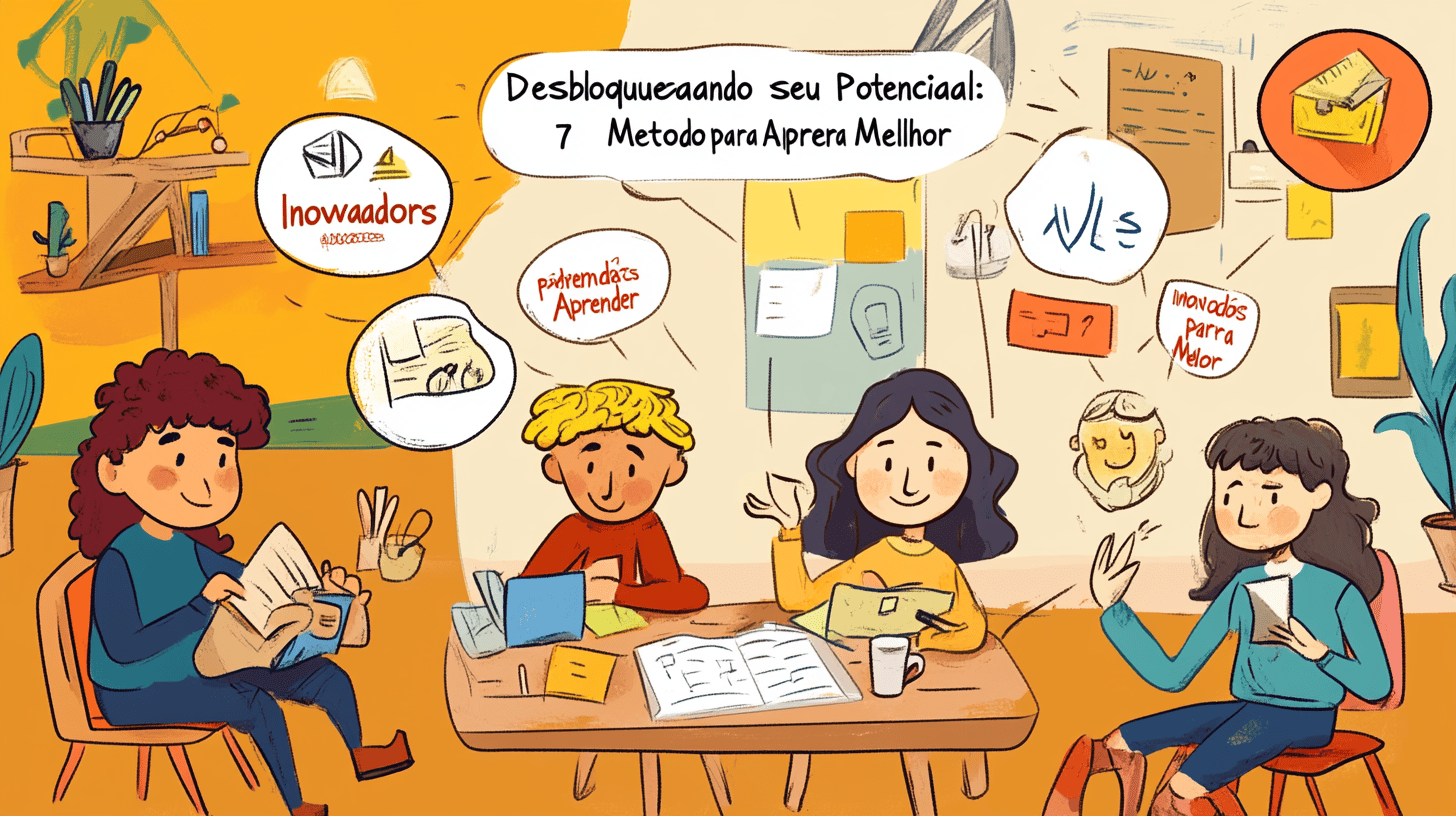A educação é um pilar fundamental para o desenvolvimento pessoal e profissional de qualquer indivíduo. No entanto, muitas vezes, a abordagem tradicional de aprendizagem pode não ser suficiente para todos. O que se torna evidente é que precisamos de métodos inovadores e eficazes para ajudar os estudantes a desbloquear seu verdadeiro potencial. Neste post, vamos explorar sete métodos únicos que podem transformar a maneira como você aprende, garantindo que cada sessão de estudos seja mais produtiva e envolvente.
1. Aprendizagem Baseada em Projetos
Uma das formas mais eficazes de aprender é a aprendizagem baseada em projetos (ABP). Este método envolve trabalhar em projetos práticos que requerem a aplicação de conhecimentos teóricos em situações da vida real. Por exemplo, ao estudar biologia, você pode desenvolver um projeto sobre a biodiversidade local, fazendo análises de campo e estudos em laboratório. Isso não só aumenta a compreensão do tema, mas também desenvolve habilidades práticas de resolução de problemas.
2. Gamificação do Aprendizado
Transformar o aprendizado em um jogo é uma estratégia criativa que muitos educadores estão adotando. A gamificação envolve a aplicação de elementos de jogos em contextos de aprendizagem. Isso pode incluir a criação de quizzes interativos, competições e sistemas de recompensas por conquistas acadêmicas. Por exemplo, plataformas como Kahoot! permitem que você crie jogos de perguntas que tornam a aprendizagem mais divertida e dinâmica, facilitando a retenção de informações.
3. Aprendizagem Colaborativa
Aprender em grupo pode ser uma maneira poderosa de compartilhar conhecimento e esclarecer dúvidas. A aprendizagem colaborativa envolve a troca de ideias e a discussão em equipe. Formar grupos de estudo pode ajudar você a entender melhor os conceitos desafiadores, já que explicar o que você aprendeu para os outros pode solidificar o seu próprio entendimento. Além disso, a diversidade de perspectivas enriquece o processo de aprendizado.
4. Mind Mapping (Mapas Mentais)
Os mapas mentais são ferramentas visuais que ajudam a organizar informações de maneira intuitiva. Utilizar essa técnica pode melhorar a sua capacidade de memorizar e recordar informações. Comece desenhando um círculo central com o tema que está estudando e, em seguida, desenhe ramos com subtemas e palavras-chave. Essa visualização facilita a conexão entre ideias e conceitos, tornando o aprendizado mais eficaz.
5. Ensino Mútuo
Este método envolve ensinar o que você aprendeu a outra pessoa. O ato de explicar um conceito a um colega ou até mesmo gravar um vídeo tutorial sobre um tópico que você domina pode reforçar seu próprio entendimento. A prática de ‘ensinar para aprender’ é uma das técnicas mais eficazes, já que ao preparar ensinamentos, você se força a esclarecer suas próprias dúvidas e a aprofundar seu conhecimento.
6. Estudo Espaced (Distribuído)
O estudo espaçado é uma técnica que envolve distribuir as sessões de estudo ao longo do tempo, em vez de concentrar tudo em um único período, o que é conhecido como ‘cramming’. Esta estratégia é baseada na ciência da memória e permite que você retenha informações de longo prazo. Experimente revisar seu material uma vez por dia ao longo de uma semana, ao invés de quatro horas em um único dia antes do exame. Isso ajudará a reforçar seu aprendizado de forma mais eficiente.
7. Técnicas de Relaxamento e Mindfulness
O estresse e a ansiedade podem prejudicar significativamente a capacidade de aprendizagem. Incorporar técnicas de relaxamento, como a meditação e exercícios de respiração, pode melhorar a concentração e a clareza mental. Dedique alguns minutos antes das sessões de estudo para acalmar a mente e se preparar para o aprendizado. Experiências práticas, como a meditação mindfulness, podem aumentar sua capacidade de foco e produtividade.
Conclusão
Explorar novos métodos de aprendizagem pode ser a chave para tirar o máximo proveito do seu potencial acadêmico. Ao implementar algumas das estratégias mencionadas neste post, você não apenas tornará seu aprendizado mais agradável, mas também mais eficaz. Tente integrar uma ou mais dessas técnicas em sua rotina de estudos e observe como elas impactam seu desempenho. Lembre-se, cada estudante é único, e encontrar o método que melhor se adapta ao seu estilo de aprendizagem pode fazer toda a diferença em sua jornada educacional. Não hesite em compartilhar sua experiência e as metodologias que funcionaram melhor para você nos comentários abaixo. Vamos nessa jornada juntos!


